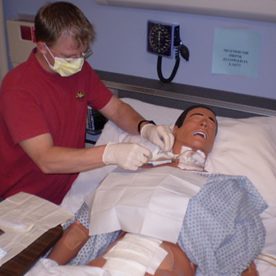Nursing Skills Lab Policies and Procedures
Students are expected to conduct themselves in a professional manner when in the Nursing Lab. Specific rules are in place to ensure student safety as well as the preservation of Nursing Lab resources.
- Students are required to check in with lab personnel and present a current ACC student ID before using Open Lab. This includes practicing or observing.
- Students must wear closed-toe shoes (clinical appropriate footwear) when in the lab. Specific dress code guidelines are listed in the Nursing Student Handbook.
- Students should bring their lab kits each time they come for class or Open Lab. For additional supplies, please ask lab personnel.
- Children, friends and family members are not allowed in the Nursing Lab. Only 1105 Nursing Skills and Nursing students are allowed to practice in Open Lab. With approval, other ACC Health Science Departments may be allowed to use the Nursing Lab.
- No eating or drinking in the lab.
- Proper hand hygiene is an important part of nursing practice. Alcohol-based hand sanitizers are available for use.
- No products in the lab are safe for human ingestion, injection or infusion (via skin, oral, vaginal or rectal routes). Products and supplies in the Nursing Lab are intended for teaching purposes only and are not safe for human or animal use.
- Mannequins should be treated like “real” patients. Please ask lab personnel for any questions regarding mannequin use.
- Mannequins have IV bags of simulated blood attached to them. Please be aware of these when moving the mannequins into other positions.
- Students should not use ink pens or markers at the patient bedsides. These items will permanently stain the mannequins.
- Providone Iodine (Betadine) and Chloraprep swabs will also permanently stain the mannequins. Do not use any of these products that might come in any of the lab kits. Please simulate using these items.
- Students are expected to leave the Nursing Lab in good condition. Please return all supplies to lab personnel or to the area you found them. Properly dispose of all sharps and trash.
- Sharps are to be placed in sharps boxes after use. No re-capping or reusing needles or IV catheters. Please dispose of these items in the sharps containers.
- No equipment or supplies may be taken out of the Nursing Lab without approval.
Regular Scheduled Labs, Simulation Labs, and Mastery Check-offs
All students may wear generic scrubs and closed-toe shoes. Tee shirt under scrubs is permitted if needed to ensure body parts are not exposed, unless otherwise specified by the clinical instructor. The scrubs must be neat, clean and pressed in order to project a professional image.
Open Lab Practice
Students do not have to wear scrubs, but must wear closed-toe shoes. No short shorts, revealing tops, halter tops, tank tops or exposed midriffs. Students must bring their ACC student ID to check into Open Lab. No exceptions.
Clinicals
All students must wear the ADN or VNG program designated uniform (specified teal scrubs) with school patch and ACC photo ID badges in all clinical settings, unless otherwise specified by the clinical instructor. The scrubs must be neat, clean and pressed in order to project a professional image.
Accessories and Jewelry
- Kneehigh stockings or white socks may be worn with the uniform. No decorative socks.
- Solid white or teal tee shirts may be worn under the uniform.
- White lab coats or designated solid teal scrub jackets may also be worn.
- Shoes must be white and clean without large logos or colors.
- Photo ID badges are required in all clinical settings at all times.
- Waist packs must be conservative, logo free, white or a solid dark color, clean and neat in appearance.
- Any visible jewelry will be conservative and in good taste.
- Rings without raised stones or designs will be allowed in moderation.
- Earrings must meet these specifications: 6 mm or 1/4 in. in diameter or smaller; gold, silver, white pearl, or diamond; unadorned and spherical; fit snugly against the ear lobe; maximum of two earrings per lobe.
- No other jewelry or body piercing materials can be visible while in any clinical setting.
- Fad devices, vogue medallions, personal talismans, or amulets cannot be worn.
- A watch with a second hand must be worn at all times.
Hygiene and Body Grooming
- All students are representatives of ACC and the ADN program at all times. Each student should be mindful of their appearance, especially when in clinical, or other times as an ACC representative.
- Uniforms and lab coats will be freshly laundered, neat, and fit properly.
- Shoes and socks will be clean and neat.
- Excessive make-up or strong smelling perfumes/colognes are not permitted.
- Extreme shades of lipstick and nail polish such as bright colors, purple, gold, blue, white or combination colors/designs are not permitted.
- To the extent possible, body tattoos will be covered at all times in the clinical setting.
- Hair will be neat, clean, and freshly combed in a conservative style. No fad designs or colors will be accepted. Hair must not fall in front of the shoulders while in the clinical setting or lab. Hair must be secured from falling across face when in clinical and lab.
- Mustaches, beards, and/or sideburns will be neatly trimmed and short.
- Finger nails must meet the following criteria: no longer than 1/4 inch, clean, no artificial nails, no chipped nail polish, no nail wraps, decorations, nail jewelry or other artificial additions.
Any communication related to scheduling or changes to planned lab activities should be submitted in writing to Skills Lab or Sim Coordinators via email. A list of coordinators can be found on the Skills Lab Contacts page.
Faculty wishing to reserve space outside of their regularly scheduled class must contact the Skills Lab Coordinator (Stacy Gray, [email protected] at RRC or Mary Lutz, [email protected] at EVC) to determine if there is space available to host the requested activity. If the activity is a simulation, the faculty must next consult the simulation liaison to check availability.
Available space is determined on a first-come, first-served basis after all classes have been given their allotted times per the course schedule. Skills Lab requests for classes, practices, check-offs, and simulations must be received two weeks prior to the scheduled activity.
Welcome to the Simulation Lab (Google Slides presentation)
Call Out – A tactic used to communicate critical information.
Check Back – A closed-loop communication strategy used to verify and validate information being exchanged.
Clinical Judgment – The art of making a series of decisions to determine whether to take action based on various types of knowledge.
Clinical Reasoning – The process used by nurses and other clinicians to gather information, process the information in order to understand patient problems, plan and implement interventions, evaluate outcomes, and reflect and learn from the process.
Critical Thinking – A goal-directed process of analyzing information objectively to make a reasoned judgment.
CUS – An acronym for Concerned, Uncomfortable, Safety; a tool for getting supervisors attention.
Learning Objectives – A set of Specific, Measurable, Achievable, Realistic, and Timely goals for student learning. The foci may be on Knowledge, Skill, or Behavior.
Procedural Simulation – Use of a simulation device such as task trainer or manikin for the purpose of learning a technical skill or procedure.
Psychological Safety – Ensuring that all learners are free from criticism of their actions by holding all participants to freedom from embarrassment or retribution.
Role of Student in Simulation – Assessment Nurse, Orders Management, Medication Administration, Treatment Administration, Teaching, Observation
SBAR – An acronym for Situation, Background, Assessment, Recommendation. Used to facilitate prompt and appropriate communication.
Self-efficacy – An individual’s perception or belief in his or her ability to achieve.
Simulation-based Experience – Structured activity representative of real situations which allow learners to develop or enhance knowledge, skills, and/or attitudes, and provide an opportunity for reflective thinking.
Simulation – “Simulations are defined as activities that mimic the reality of a clinical environment and are designed to demonstrate procedures, decision-making, and critical thinking.” (Jeffries, 2005)
Team STEPPS® – Communication strategies to enhance performance and patient safety (www.ahrq.gov).
Search the Health Sciences Website
Nursing Updates
Bats to Cats Transfer Program
Start at ACC and transfer seamlessly to Texas State University! If you are pursuing a Bachelor's degree, get the details on admissions requirements, deadlines, and financial support.
Read moreRN-to-BSN Spring 2025 deadline extended
The Spring 2025 deadline for the RN-to-BSN program has been extended. The new Spring 2025 deadline is December 15, 2024.
Read moreUPDATE: Central Health MAP Basic Insurance
Central Health - Medical Access Program (MAP) Basic coverage is no longer accepted at clinical sites effective Fall 2024. Only MAP (non basic) will be accepted.
Read more

